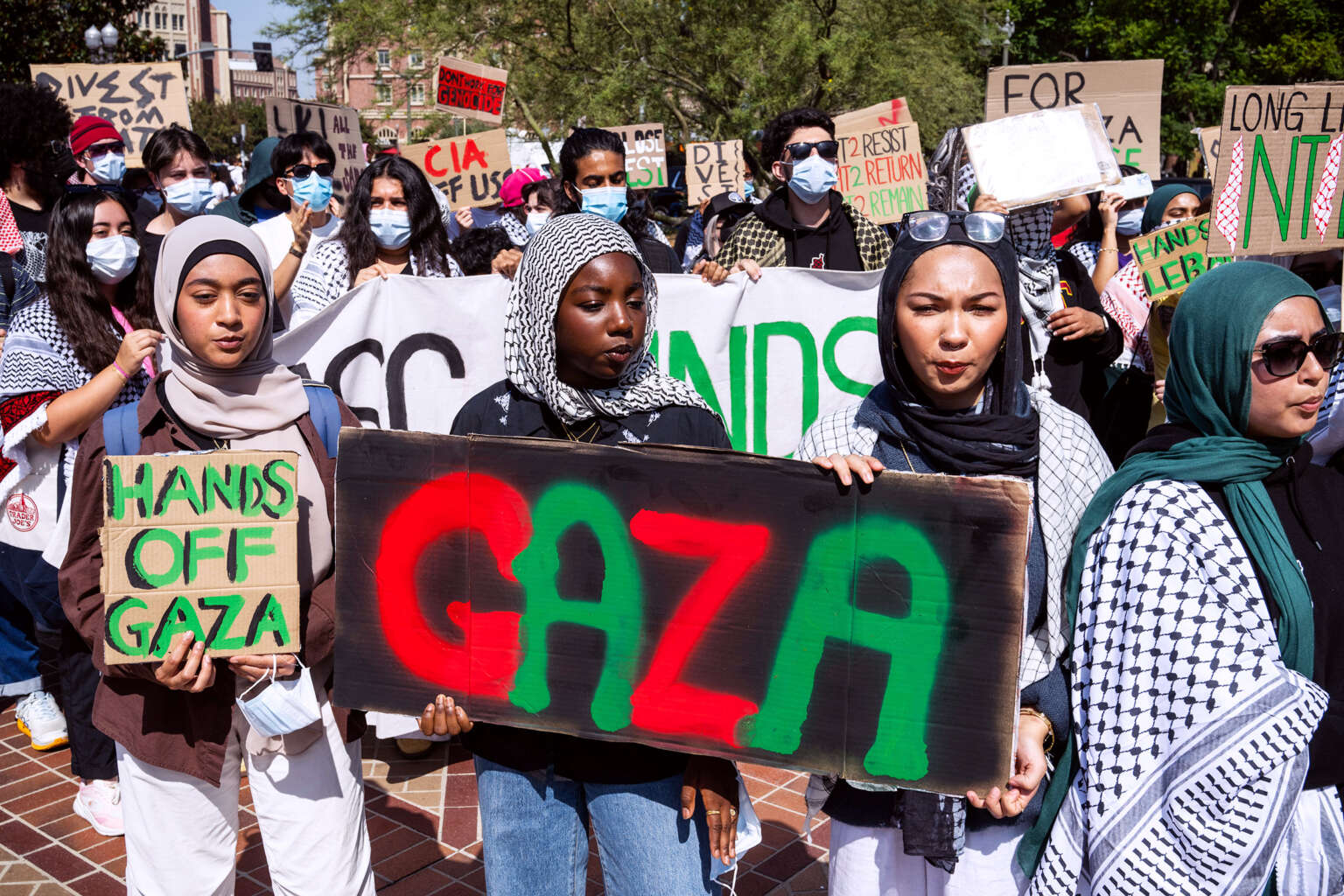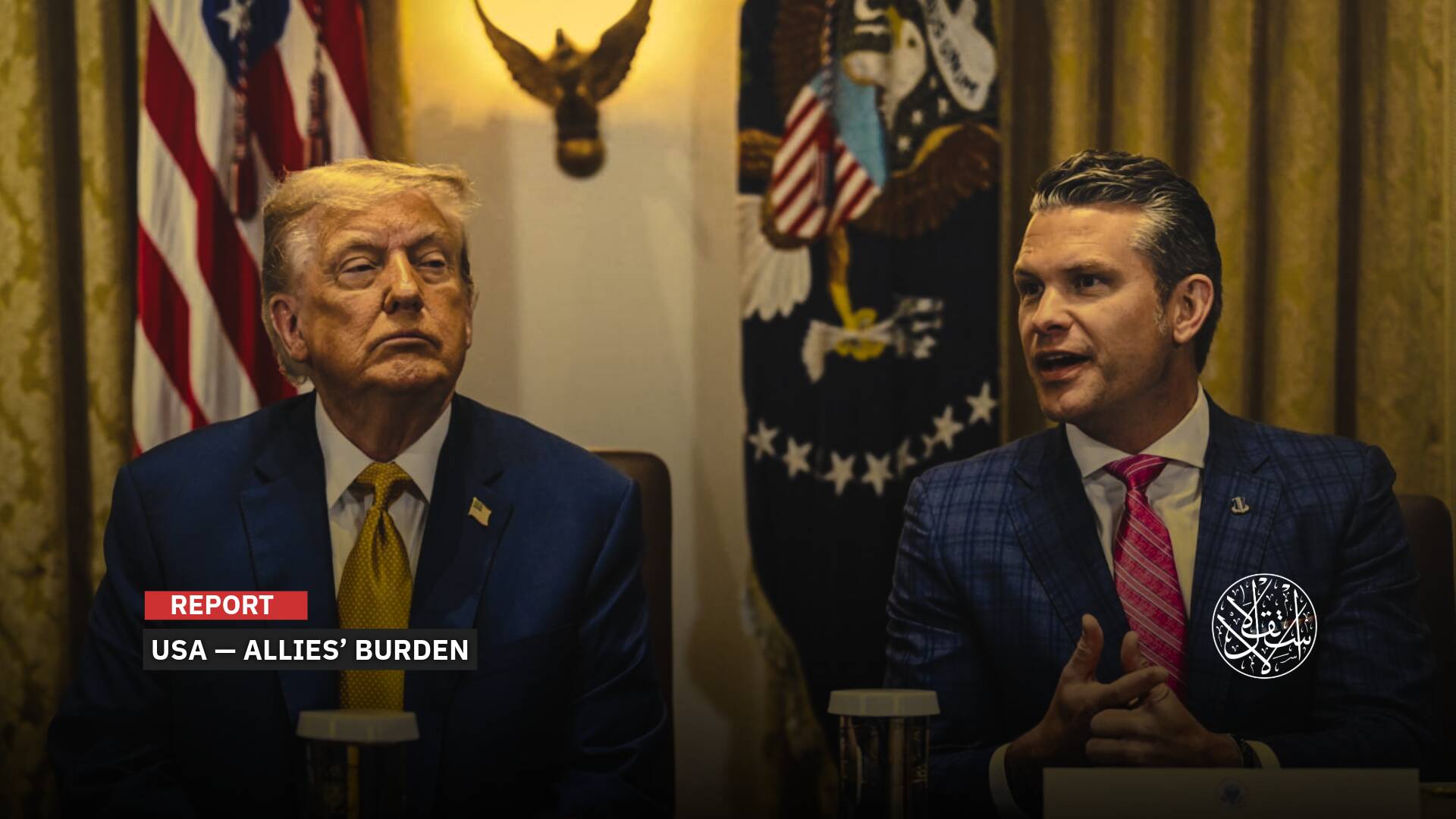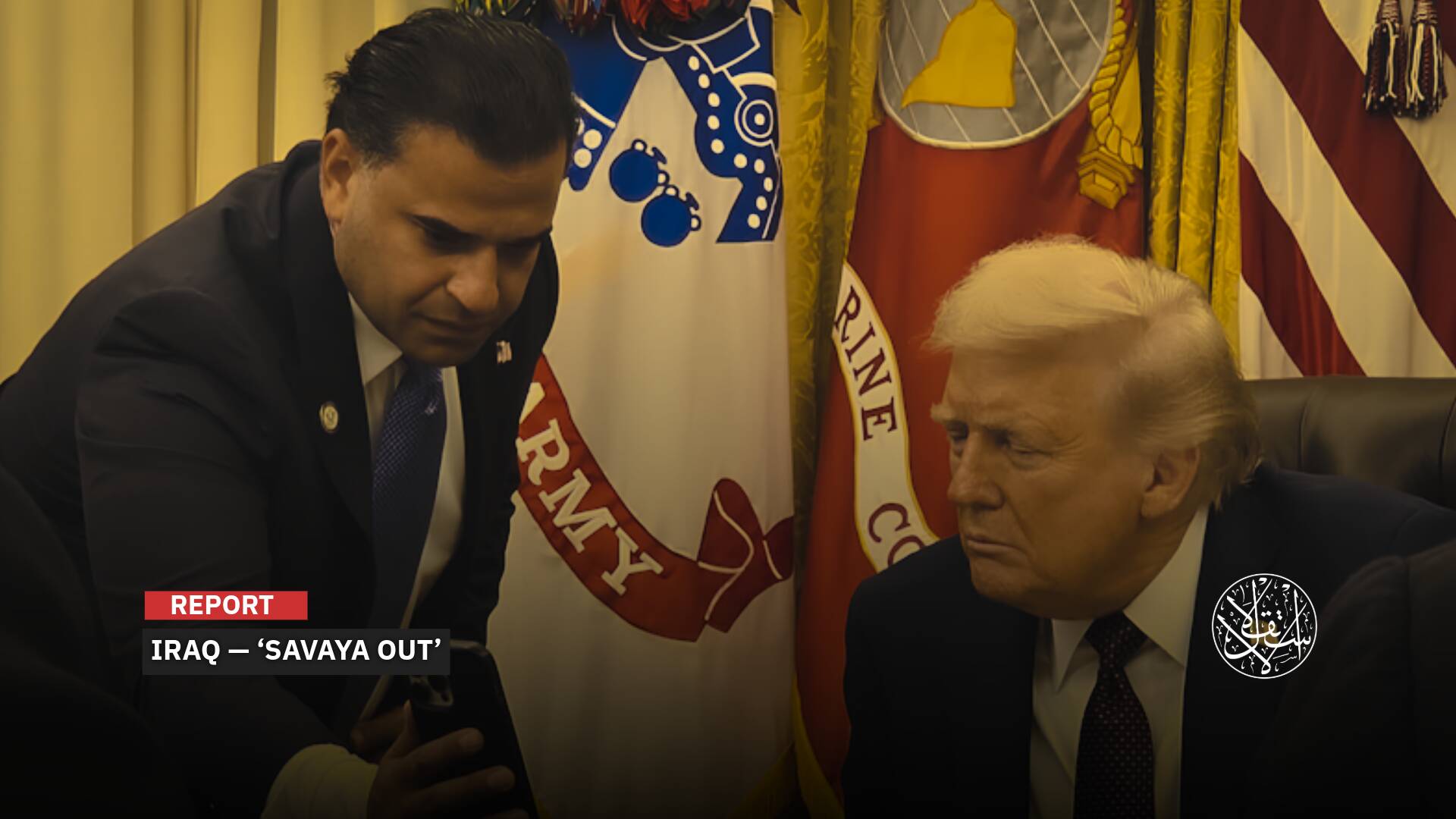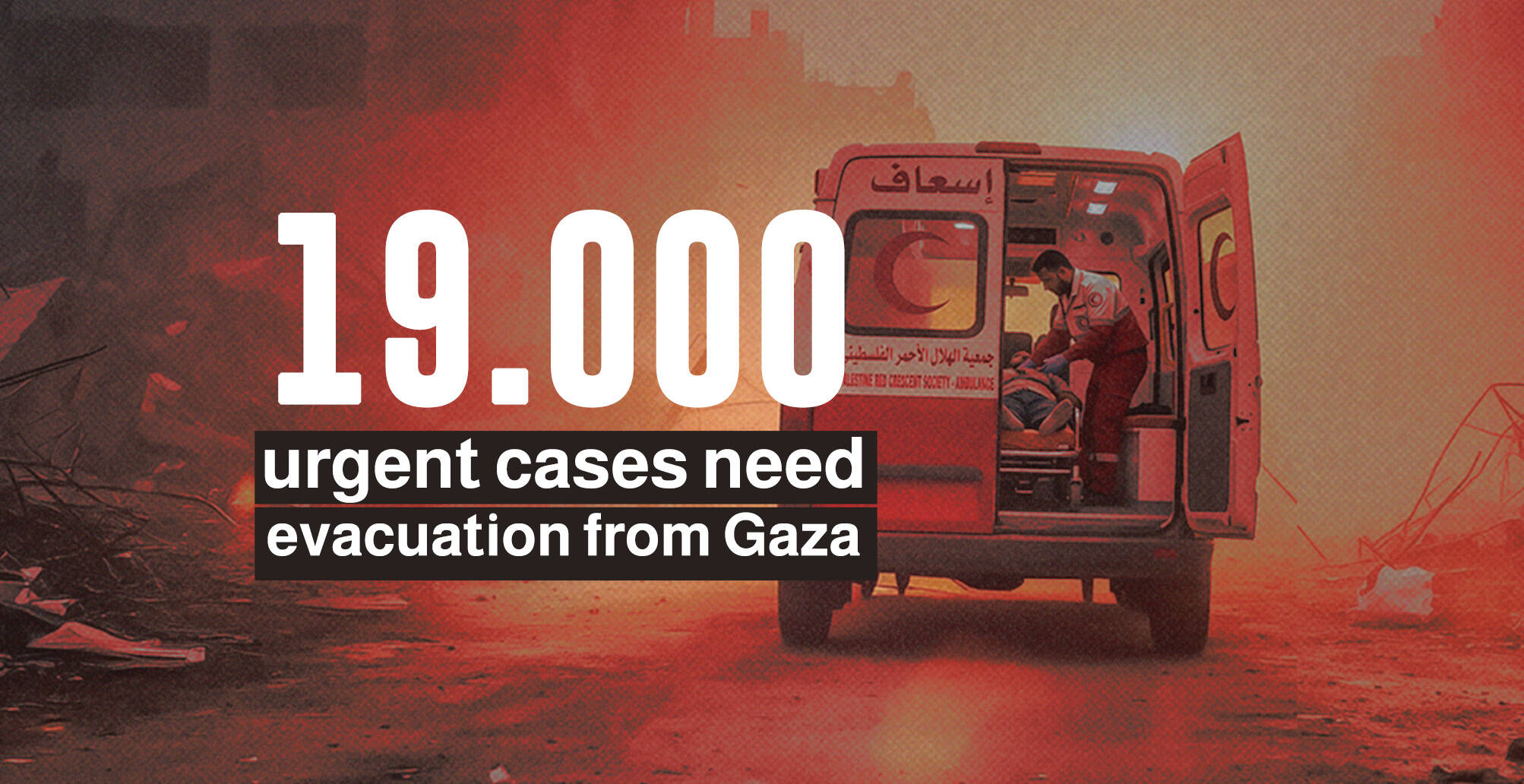How Pro-‘Israel’ Lobbies Are Trying to Restrict Palestine-Related Education in California

“Ethnic studies emerged from the student and social justice movements of the 1960s.”
As censorship of pro-Palestinian voices on American campuses escalates, California is witnessing one of the most serious attempts to undermine educational freedom and cultural pluralism, a move that has sparked widespread controversy within educational and legal circles across the country.
The most populous state is set to vote this month on a controversial bill that seeks to impose strict oversight on ethnic studies curricula in its high schools, particularly when they address the Palestinian cause.
Despite California's progressive reputation for adopting this type of educational program, Democratic support for this approach has raised questions about the limits of academic freedom of expression and the extent of the politicization of curricula.
Last year, members of the California Legislative Jewish Caucus proposed a raft of bills meant to stifle Palestine-related speech in public schools and on college campuses, including AB 2918.
When a diverse coalition of educators and advocates mounted a pressure campaign and succeeded in having it shelved, sponsors vowed to reintroduce it this year.
Educational Restrictions
The Intercept revealed that California Democratic lawmakers, backed by pro-"Israel" lobby groups, are working to pass a new bill that would censor school curriculum content related to the history of the so-called Palestinian-Israeli conflict.
For years, the California Democratic Party has championed an ambitious plan to include ethnic studies in high school curricula, considering it a necessary step toward more inclusive and equitable education.
Despite repeated attacks from conservative right-wing media and local criticism, the state legislative majority was able to pass a law in 2021 requiring all high school students to take ethnic studies as a graduation requirement, an achievement hailed at the time as a victory for racial and social justice movements.
Research shows that students who take an ethnic studies class engage more in school and are more likely to graduate and attend college.
The classes have also been shown to boost the attendance and academic performance of students at risk of dropping out.
However, the inclusion of the Palestinian cause in these curricula began to be viewed as a threat to bipartisan consensus.
In April 2023, the Santa Ana Public School District approved three ethnic studies classes that included content about “Israel” and Palestine, including the Nakba and settlements.
This sparked objections from pro-“Israel” groups, led by the Anti-Defamation League (ADL), which filed a lawsuit against the school district, claiming the classes incited unprecedented hatred against Jewish students.
In February 2025, the controversial classes were dropped under a legal settlement reached by the parties.
But days after the Santa Ana crisis, Assembly Bill 1468 was passed, restricting local school boards' powers regarding ethnic studies curricula.
This bill was introduced following an alliance between several California state legislators, community organizations, and the pro-“Israel” lobbying coalition, represented by the Jewish Public Affairs Committee of California (JPAC).
Subsequently, JPAC published a list of five cases it said exemplified anti-Semitism, prompting some school administrators, such as the Fort Bragg Unified School District, to express their dismay at the inclusion of their names without notification or verification of the actual content.

Ethnic Studies
Under the pretext of combating hate speech, the new bill aims to set new standards for ethnic studies courses, limiting the power of local school boards to choose what suits their community and cultural contexts.
The inclusion of ethnic studies has its roots in student protests at California universities in the 1960s and was formally codified in the state's education law in 2021 after years of controversy.
However, this process excluded voices advocating for an anti-colonial approach, and any references to the Palestinian cause were removed from the curriculum before the law was passed.
Under the proposed new amendments, the task of developing uniform standards for ethnic studies courses will be entrusted to a special committee composed of experts in the fields of African American, Latino, Asian American, and Native American studies, along with representatives from communities affected by hate crimes, and academics appointed by the governor.
The California Department of Education will be responsible for reviewing and approving the curriculum by 2026 and publishing it online. Abstract ideological theories will be excluded from the curriculum in favor of the local American experience.
It is worth noting that the current official educational model still reduces the Palestinian Nakba tragedy to merely ‘an event in which Palestinians left Palestine’, reflecting a clear narrative and historical bias.
The California Teachers Association opposed a similar bill last year that died. They said that bill would be too difficult to implement in ethnic studies classes.
In a related development, a coalition of academics and free speech advocates warned that these restrictions could mark a dangerous turn toward government censorship of education in California, similar to what is happening in conservative states like Florida and Texas.
The PEN America organization warned that the new bill adopts a blanket approach imposed on all schools without regard for individual schools, potentially leading to a form of educational intimidation.

Political Impact
Despite official assurances that the new bill does not impose a direct ban on any subject, statements by some Democratic lawmakers, including Senator Josh Baker, have raised concerns about the political intent behind this initiative.
Sen. Baker, in a seminar last March, criticized a presentation his son received in his twelfth-grade ethnic studies class.
The presentation featured an image of a hand pulling strings on a puppet, accompanied by the phrase: “Israel” is a state created on Palestinian land, and the United Nations considers this illegal.
Baker said, “We know that the UN created Israel, and that there was no Palestine before that,” remarks that were later removed from the video of the seminar.
Following widespread criticism, Baker issued a statement clarifying that he did not intend to deny the Palestinians' connection to their land.
It is worth noting that the bill continues to enjoy strong support within the California Democratic establishment, with 31 Democratic representatives co-signing it, including all but one member of the Legislative Jewish Caucus.
Additionally, the bill has received support from influential figures in the state's education sector, such as Tony Thurmond, the state's superintendent of public instruction.
He had announced his support for an earlier version of the bill and is widely viewed as a potential candidate for governor in the 2026 election.
JPAC’s efforts have also been endorsed by a number of political aspirants, including Rep. Al Muratsuchi, chairman of the Legislative Assembly Education Committee.
For his part, Democratic Rep. Rick Chavez Zbur of Los Angeles described opponents of the bill as promoters of extremist curricula, citing their influence within the University of California system and teachers' unions.
These facts highlight the growing political influence in shaping educational curricula, and how the subject of teaching Palestine has become a testing ground for academic freedom of expression and the rights of marginalized communities to narrate their history within a broader context of racial and social justice.
It is noteworthy that campaigns against progressive curricula increased after the October 7, 2023 attacks and the rise of the anti-war movement in the United States, but they were not sudden.

Deep Conflict
After being marginalized during the drafting process of the first Ethnic Studies Act, this movement established a Coalition for Liberated Ethnic Studies (CLES) as an alternative advisory body, but has since found itself under fire.
A federal lawsuit was filed against this coalition in 2023, but a federal judge dismissed it, warning against undermining educational freedom simply because someone objects to the content of a curriculum.
Despite mounting political pressure, hundreds of California school districts continue to develop their ethnic studies curricula independently, without the more than $200 million in financial support the state had pledged.
The bill was set to be heard on April 30 in the Assembly Education Committee, but lawmakers voted to extend a key deadline and hear the bill in a later committee hearing planned for May 15.

For his part, writer Mohammed Ghanem explained to Al-Estiklal that what The Intercept investigation reveals goes beyond a local educational debate in California, noting that the ongoing battle over the Palestinian cause within ethnic studies curricula reflects a deep conflict within American society.
“AB 1468 cannot be separated from the general political context in the U.S., characterized by the rise of right-wing movements, undeclared alliances between some Democratic decision-making centers and pro-Israel groups, and what can be considered an organized campaign to demonize pro-Palestinian discourse within academic and educational institutions,” he said.
Mr. Ghanem also noted that what is happening in California—a state that has long prided itself on its progress and diversity—is confronting Americans with a new form of censorship exercised in the name of combating hate, but aimed at silencing an entire people’s political historical narrative.
“Teaching the Palestinian cause in American educational curricula is not a marginal issue. It is a clear measure of the limits of freedom of expression and of a society’s ability to confront its history and external positions with honesty and courage,” he added.
Mr. Ghanem concluded that the continued pressure on schools, teachers, and students to ignore the Palestinian Nakba or to demonize the Boycott, Divestment, and Sanctions (BDS) movement is an effort that not only harms Palestinians but also undermines the foundations of critical and democratic education in the U.S.











